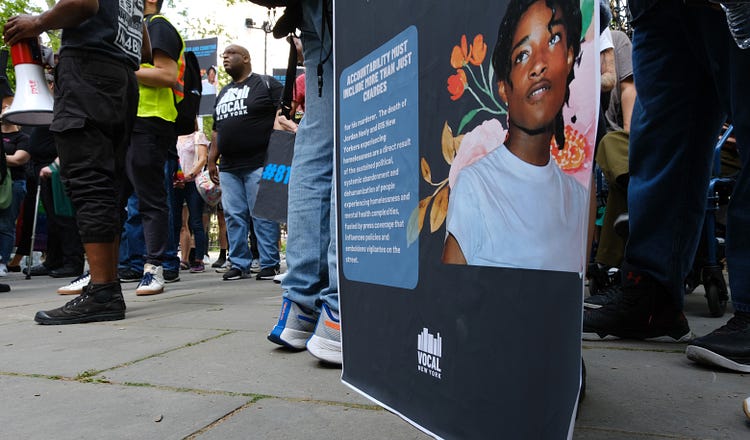The Killing of Jordan Neely: An Honestly Roundtable

New Yorkers attend a vigil for Jordan Neely, who was fatally choked on the subway by former Marine Daniel Penny. (Spencer Platt via Getty Images)
When homelessness, mental illness, and vigilantism collide on the subway.
404
It has been six weeks since Jordan Neely, a homeless man suffering from severe mental illness, was choked to death on a subway car by a former Marine named Daniel Penny. Many on the car were terrified of Neely, who had been threatening commuters. Penny, responding to a scene that has become all too familiar in New York’s subway system, restrained him in…
Continue Reading The Free Press
To support our journalism, and unlock all of our investigative stories and provocative commentary about the world as it actually is, subscribe below.
$8.33/month
Billed as $100 yearly
$10/month
Billed as $10 monthly
Already have an account?
Sign In

